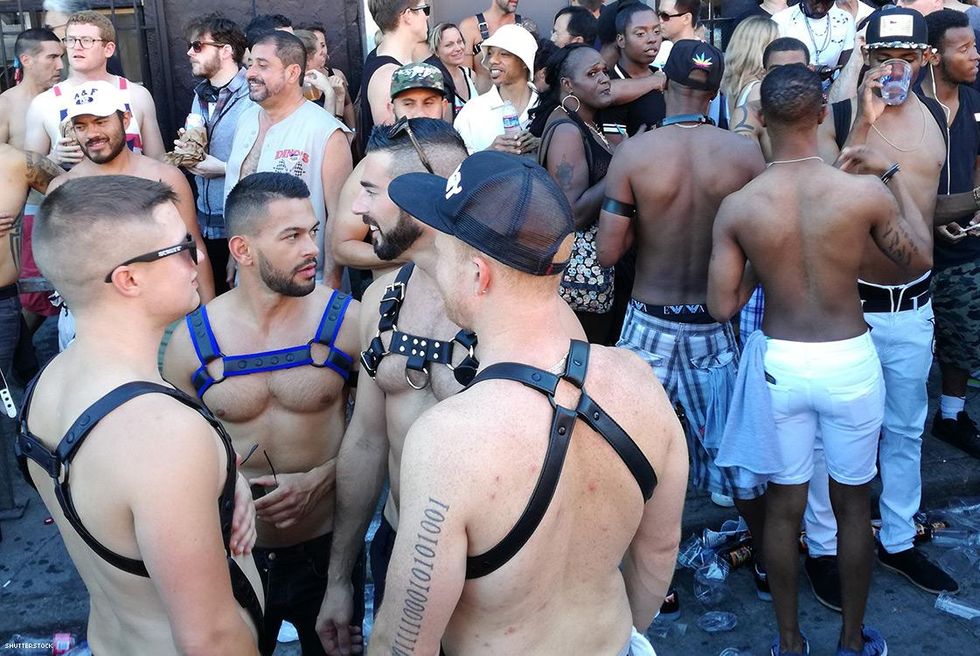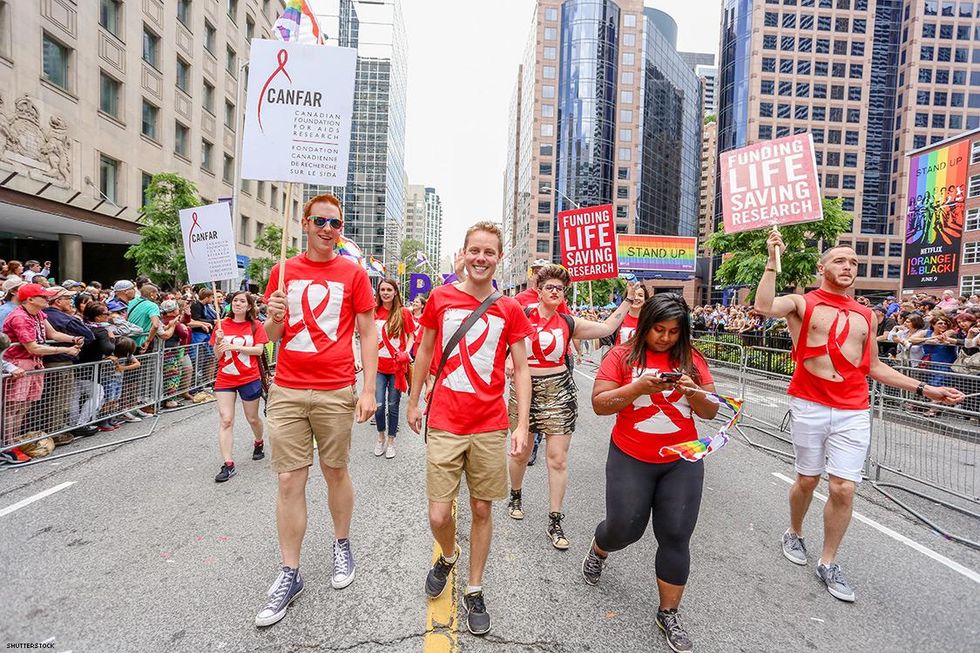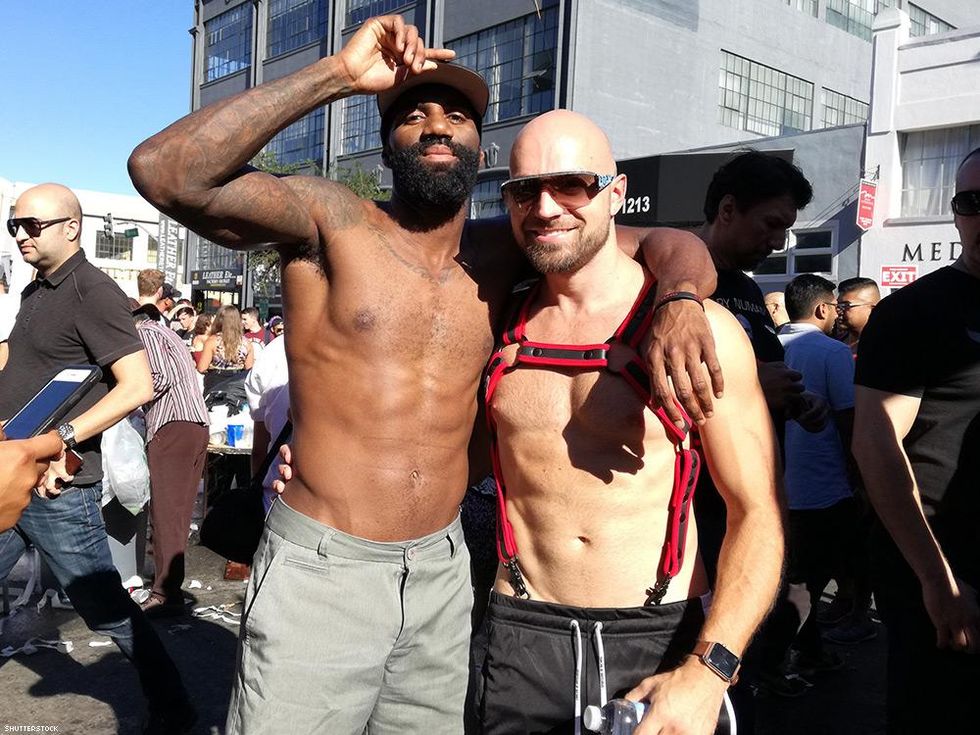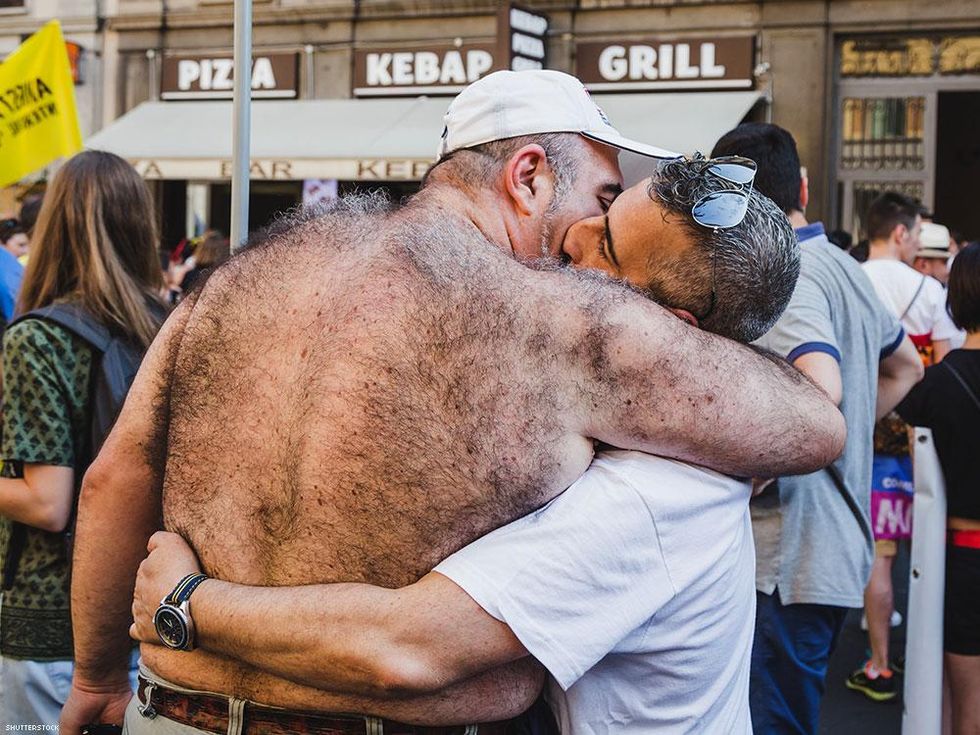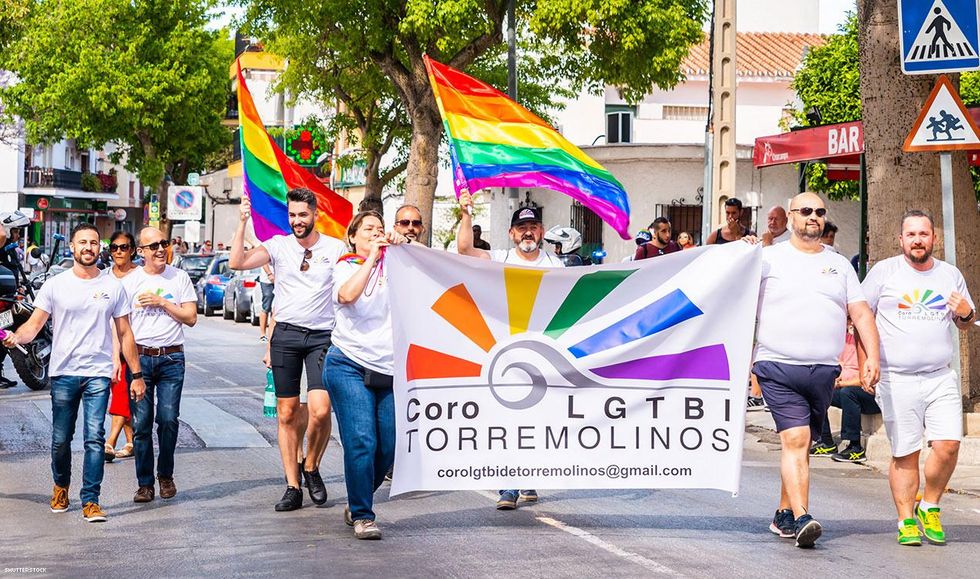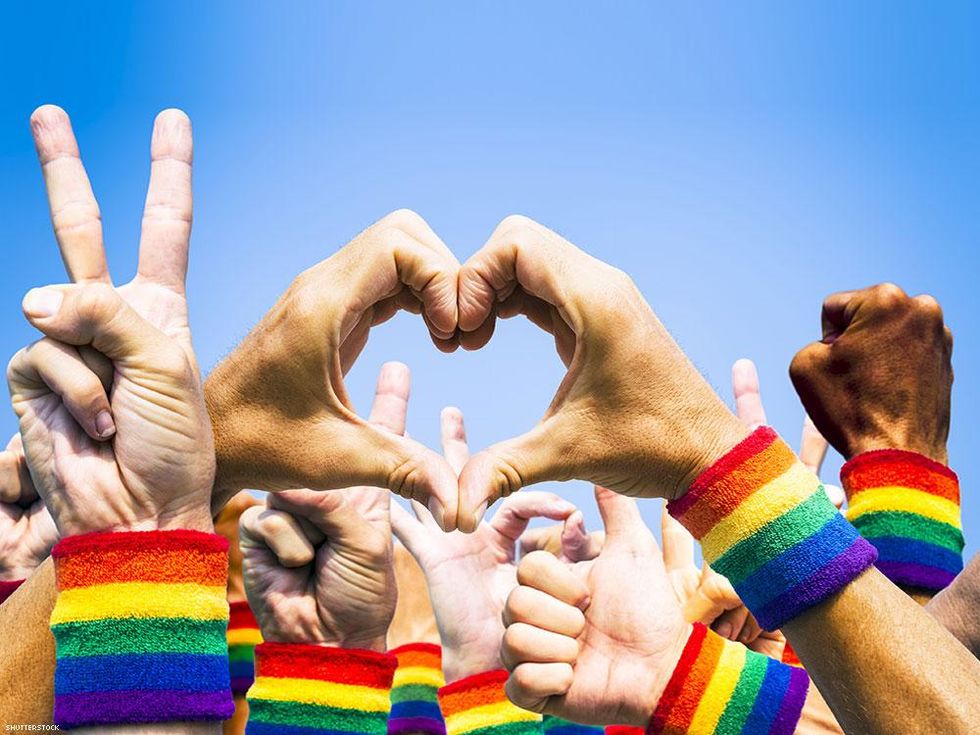What is a QUILTBAG, anyway?
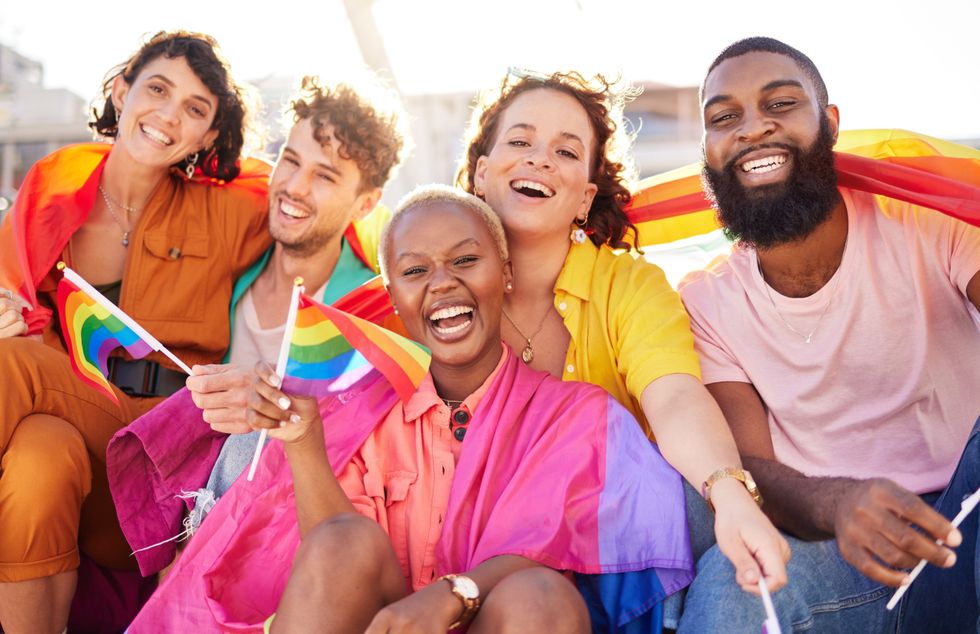
Shutterstock
These days, there are so many different sexual identities it's almost impossible to keep up with them. It seems like every other day, there's a new one in the mix, and while we're all trying to main supportive and inclusive, it's important to educate yourself whenever you can to avoid offense.
Although some newer terms are gaining popularity, there are still a whole lot that are barely getting scratched at the surface.
Here are 10 sexual identities you may or may not have heard of, as well as a little info on what they are.
1. Skoliosexual

Shutterstock
People who identify as skoliosexual (sometimes spelled scoliosexual) are only attracted to individuals who identify as either transgender or nonbinary. This doesn't particularly mean they won't be attracted to cisgender people, but it's commonly agreed upon that their attraction is to anyone who is not cisgender. As it's a newer term people are still getting used to, some of the boundaries are still getting put into play, and others challenge the label for being considered discriminatory.
2. Allosexual
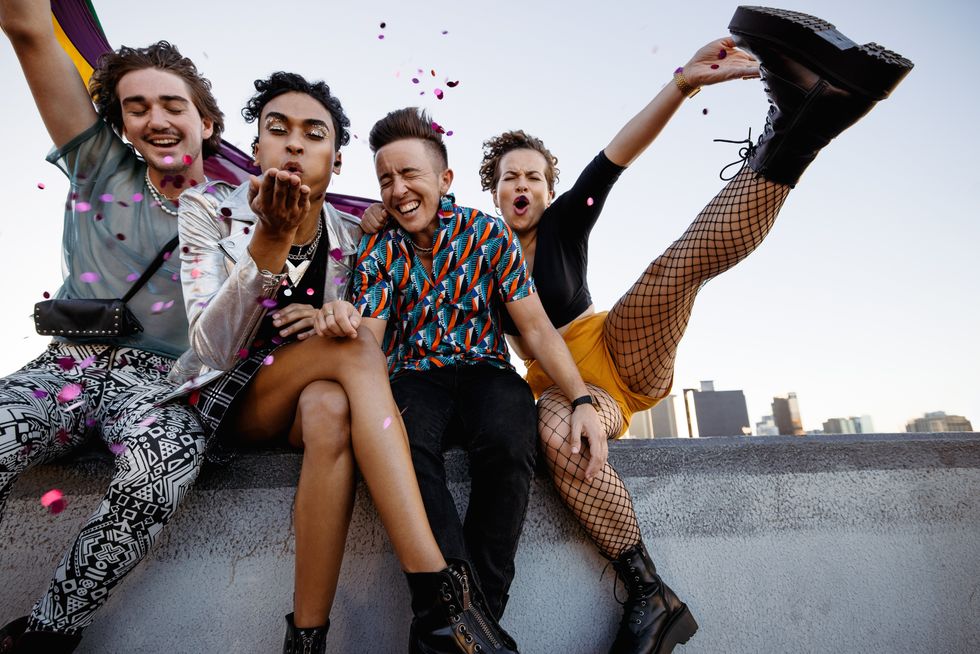
Shutterstock
Being allosexual is basically the exact opposite of being asexual -- it just means that you experience sexual attraction toward other people at least sometimes in your lives. While some people think the term is unnecessary, it actually exists to separate the idea of what is considered "normal." For example, instead of saying "an asexual person isn't normal because they don't experience sexual attraction toward others," it's instead saying, "asexual people do not experience sexual attraction, allosexual people do, and both are completely normal and acceptable."
3. Androsexual
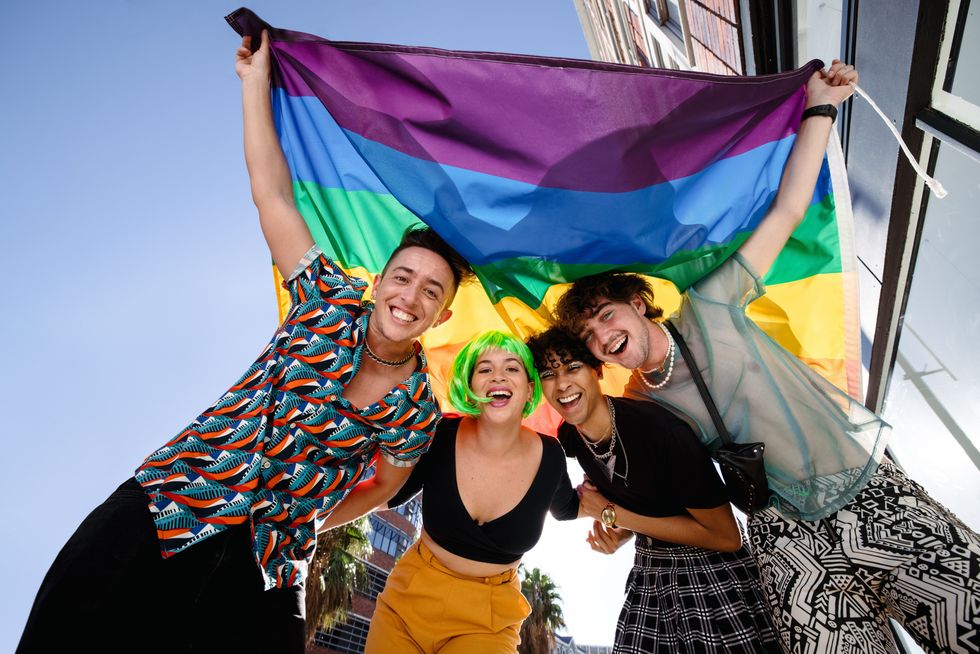
Shutterstock
"Andro" is a Greek prefix representing masculinity, and thus, androsexual individuals are attracted to males, masculine energy, or those who identify on the male spectrum. Although many sexualities focus on the gender binary, including "those who identify on the male spectrum" sets androsexuality apart because you don't have to be attracted to a physical male. Someone could simply have masculine features or a masculine demeanor and those who identify as androsexual are likely to feel an attraction.
4. Graysexual
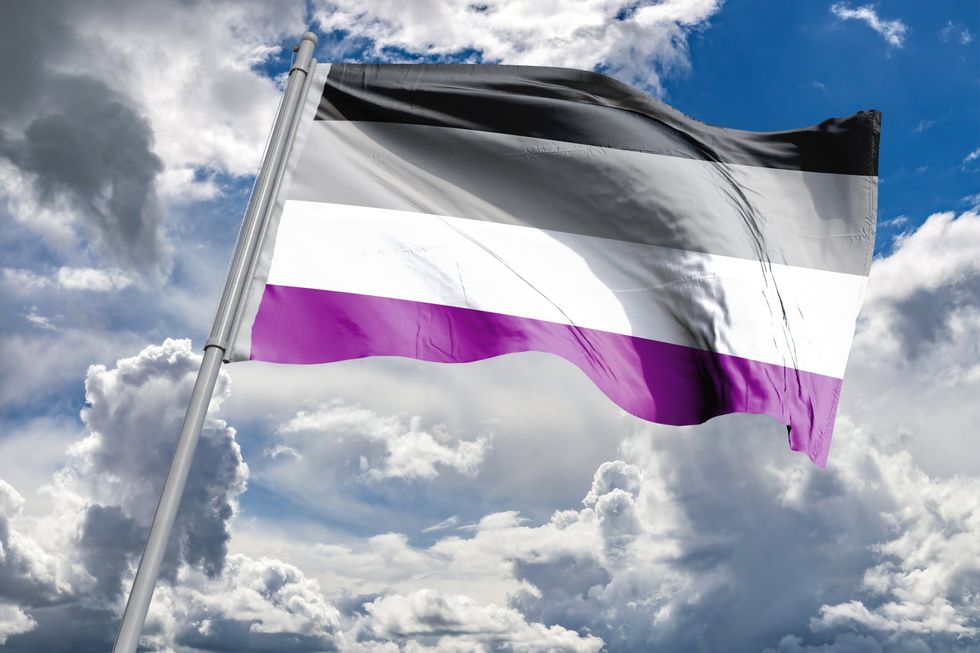
Shutterstock
"Graysexual" is actually one of the umbrella terms used for asexuality. The "gray area" here, if you will, is that graysexuals experiences attraction occasionally, and sometimes doesn't enjoy sexual intercourse at all. Usually, they only enjoy it under very specific circumstances, and their sexual attraction is extremely limited.
5. Sapiosexual
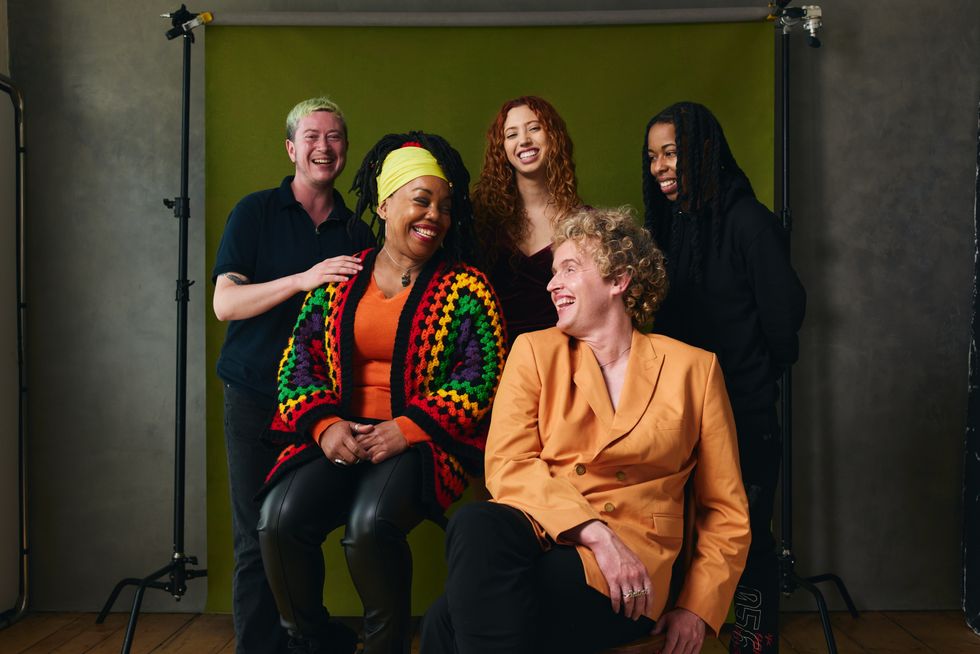
Shutterstock
Here's one for the thespians out there: Sapiosexuality is attraction toward highly intelligent people. This attraction is so important that it's actually the most important trait in a partner. This is a relatively new term, as well, and both heterosexual people and those on the LGBTQIA+ spectrum can identify as sapiosexual. Due to it's newness, it's another one where the fine print is still getting a little tuning, especially for those who consider it to be more of a fetish as opposed to a sexual orientation or identity.
6. Spectrasexual
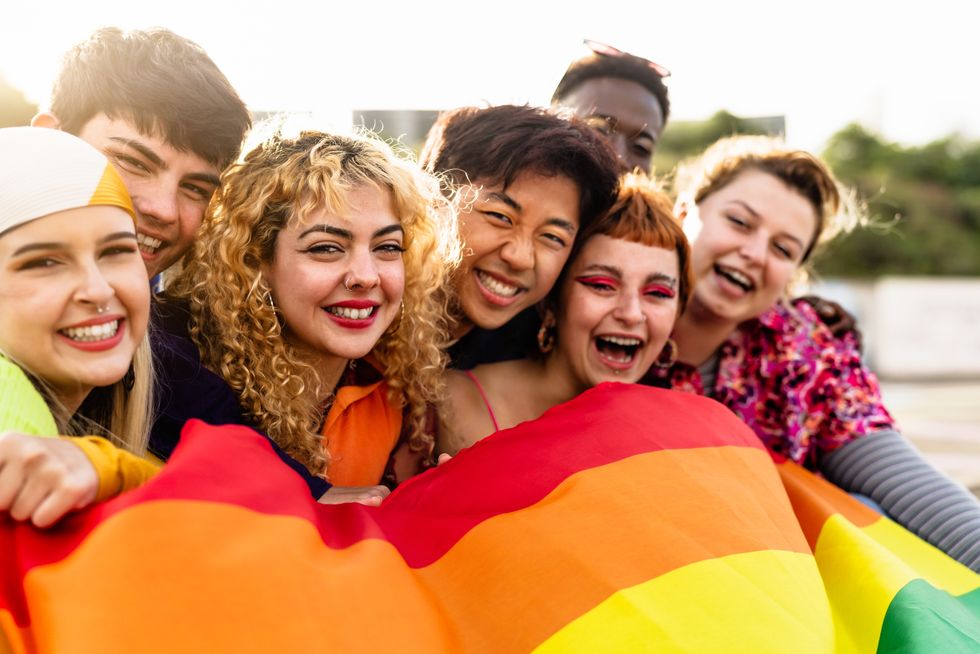
Shutterstock
This one can get a little tricky, because spectrasexuality sounds a lot like pansexuality, in that spectrasexuals are attracted to a wide range of sexes, genders, and gender identities. One key difference here is they still have certain preferences, whereas those who identify as pansexual or omnisexual are not concerned with gender at all. Like a lot of others on this list, it's still a newer one, so don't feel bad if you haven't heard of it yet.
7. Pomosexual
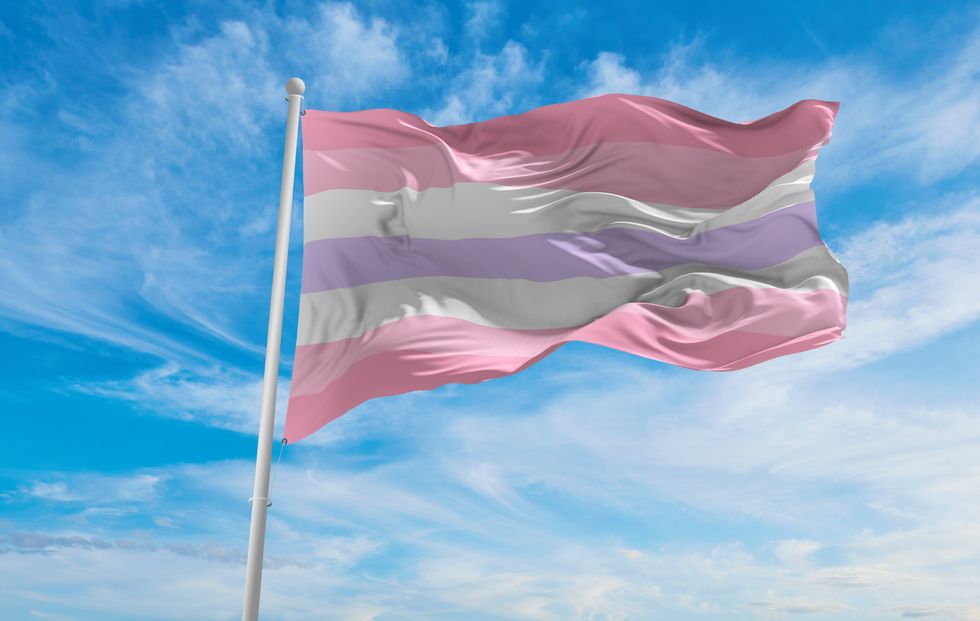
Shutterstock
Those who identify as pomosexual either refuse, don't fit, or aoid any sexual orientation labels that use convention terms like gay, lesbian, or anything in between. Some pomosexuals may either be queer or questioning, while others may not be. It exists to challenge assumptions held within the LGBTQIA+ community, as well as the assumptions about what it means to be queer in the modern day.
8. QUILTBAG
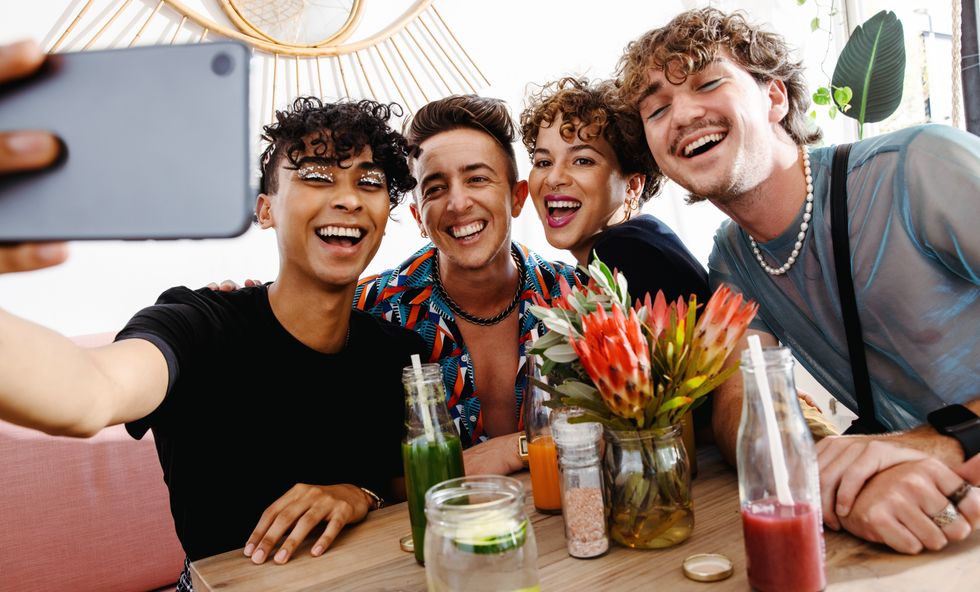
Shutterstock
QUILTBAG isn't so much an identity as it is an acronym. It stands for Queer/Questioning, Undecided, Intersex, Lesbian, Transgender/Transsexxual, Bisexuals, Allied/Asexual, and Gay/Genderqueer. Basically, it's just "LGBTQIA+" rearranged into an acronym spelling a word to encompass the entire spectrum of what it means to be a QUILTBAG. This one isn't exactly new, but it is getting more use as people try to move into different terms to use.
9. Autosexual

Shutterstock
Autosexuality is all about the me, myself, and I. Autosexual individuals primarily experience sexual attraction toward themselves, and who better to love you than you? Don't get it twisted, though: The keyword here is primarily. Autosexual individuals are still happy with and desire sexual and romantic relationships, it's just, at the end of the day, they're just going to prefer having sex with themselves.
10. Polysexual
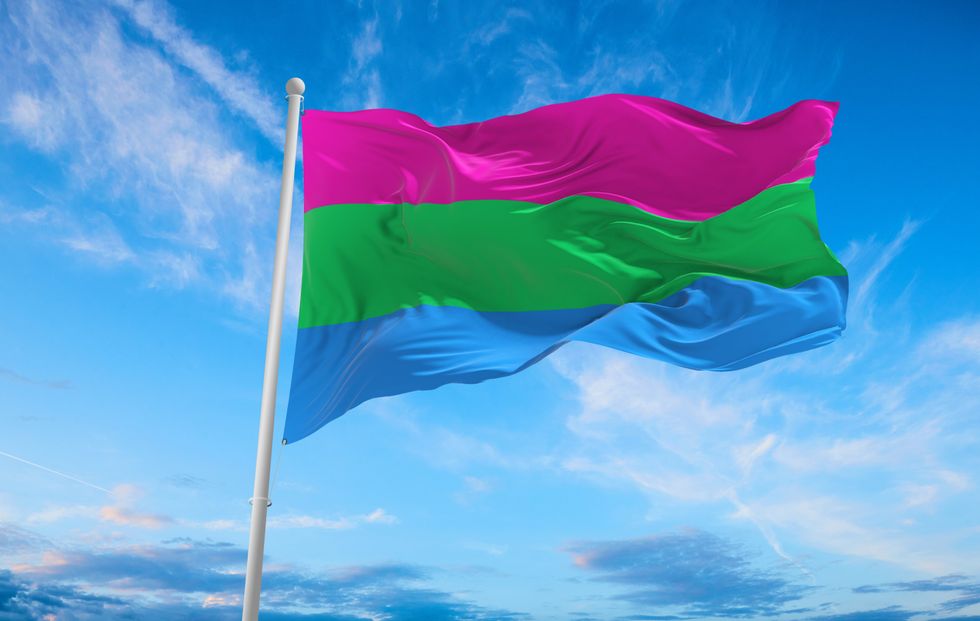
Shutterstock
"Poly" as a prefix means many, and many people automatically associate it with "polyamorous," which is being involved in more than one relationship at a time. Polysexual, on the other hand, is actually a lot like being spectrasexual, in that they are attracted to many, but not necessarily all, genders. One key difference between the two is that spectraseuxals may experience attraction on a spectrum of many identities, and polysexuals are attracted to many either scattered or selected identities. Polysexuals may or may not have a gender preference and could also experience different levels of attraction to genders.










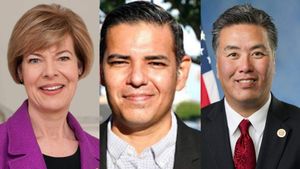

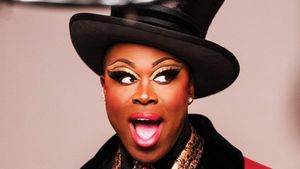











































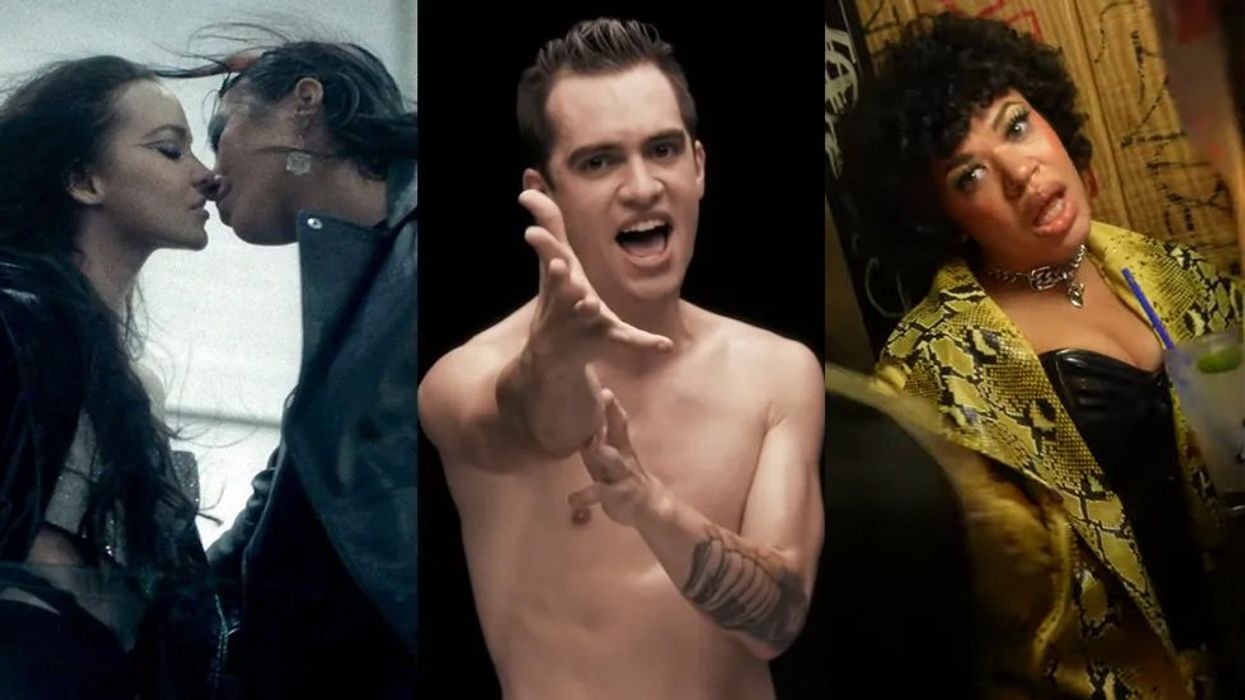
 35 bisexual pop anthems we have on constant repeatYouTube.com/Binoy
35 bisexual pop anthems we have on constant repeatYouTube.com/Binoy


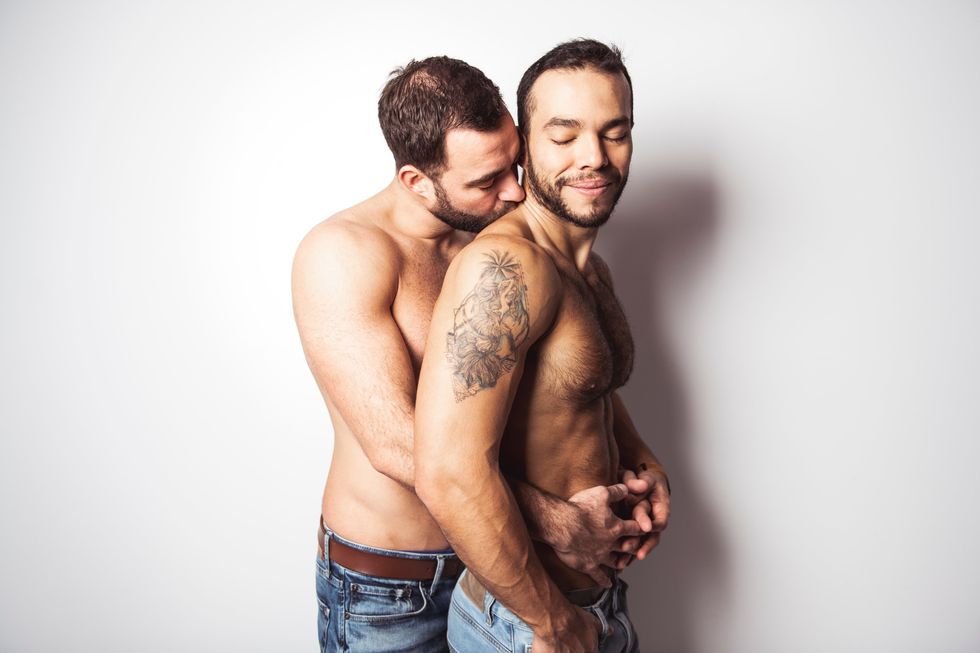
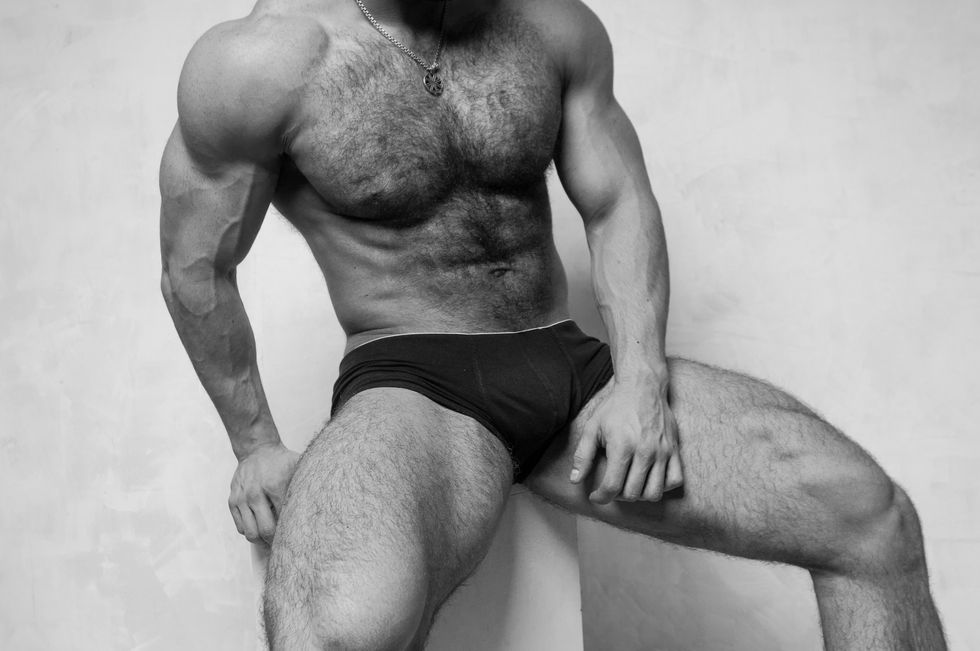
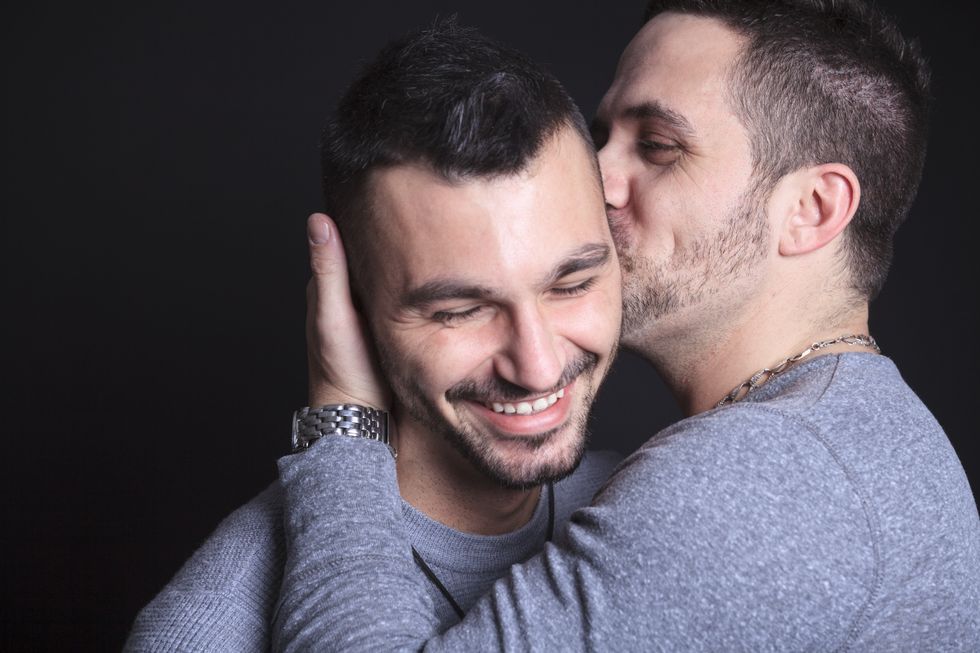






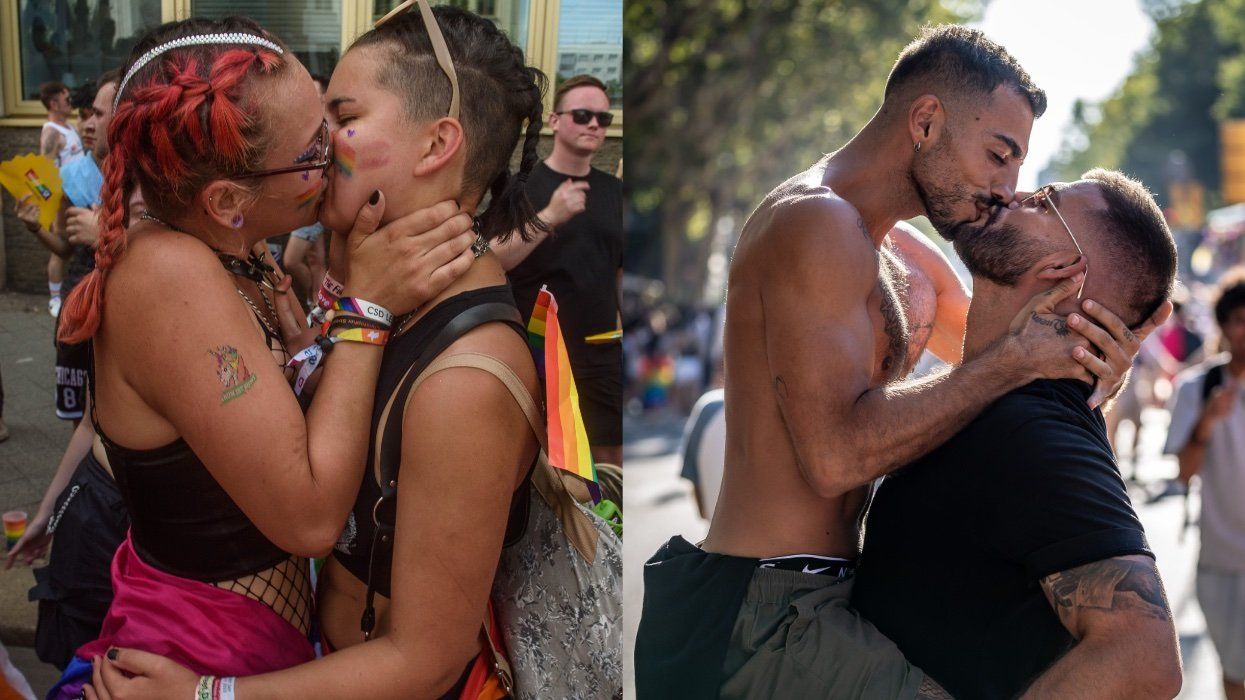
 A couple kisses in the middle of the street during the Christopher Street Day ; Men seen kissing during the 2023 Pride Barcelona Parade.Yerchak Yauhen/SOPA Images/LightRocket via Getty Images; imone Boccaccio/SOPA Images/LightRocket via Getty Images
A couple kisses in the middle of the street during the Christopher Street Day ; Men seen kissing during the 2023 Pride Barcelona Parade.Yerchak Yauhen/SOPA Images/LightRocket via Getty Images; imone Boccaccio/SOPA Images/LightRocket via Getty Images
